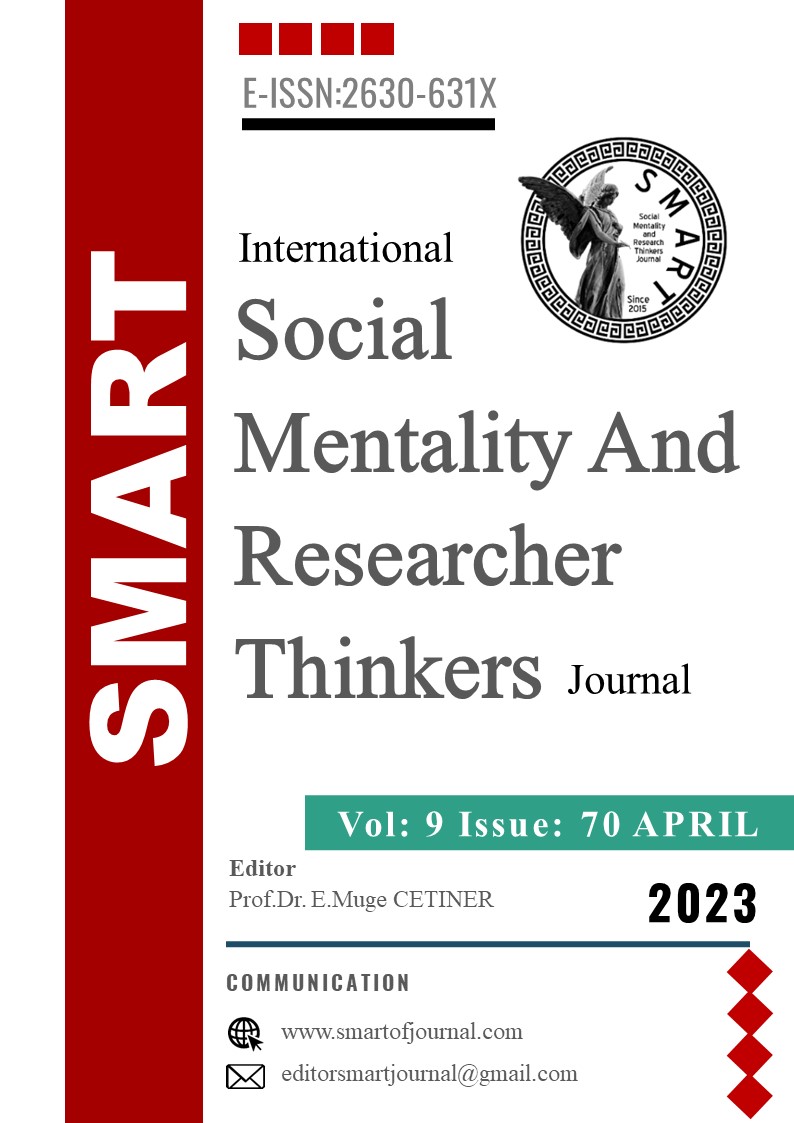Akıllı Telefon Bağımlılığı ve Nomofobinin Yordayıcıları Olarak Bağlanma Stilleri, Kimlik Duygusu ve Kişiler Arası Problemler
Author :
Abstract
Küresel çapta ve her yaş grubunda yaygınlaşarak bir ruh sağlığı ve toplum sorunu haline gelen akıllı telefon bağımlılığı ile onun bir uzantısı olarak kabul edilebilecek olan nomofobinin (telefonsuz kalma korkusu) gelişiminde, altta yatan faktörleri incelemek önem arz etmektedir. Buradan hareketle, bu çalışmada akıllı telefon bağımlılığı ile nomofobi, kendisiyle ilişkili olabileceği düşünülen bağlanma stilleri, kimlik duygusu ve kişiler arası problemler bağlamında incelenmiştir. Kesitsel bir araştırma olarak yürütülen bu çalışmaya, yaşları 18-65 arasında değişen 535 katılımcı dahil olmuştur. Ölçüm araçları olarak Akıllı Telefon Bağımlılığı Ölçeği- Kısa Form, Nomofobi Ölçeği, İlişki Ölçekleri Anketi, Kimlik Duygusu Değerlendirme Aracı ve Kişiler Arası Problemler Ölçeği-Döngüsel kullanılmıştır. Analiz sonuçları, akıllı telefon bağımlılığı ve nomofobi puanlarının demografik değişkenlere göre anlamlı farklılıklar gösterdiğine işaret etmiştir. Akıllı telefon bağımlılığı ve nomofobinin yetişkin toplum örnekleminde gerçekleştirilen bu araştırmadaki yaygınlığı sırasıyla %53.4 ve %61.1 olarak hesaplanmış ve bu kesimin bu olgular açısından risk altında oldukları değerlendirilmiştir. İlişkisel analiz sonuçlarına göre, akıllı telefon bağımlılığı ve nomofobi ile yordayıcı değişkenler arasında istatistiksel açıdan anlamlı korelasyonlar bulunmuştur. Yanı sıra akıllı telefon bağımlılığının; güvenli bağlanma, saplantılı bağlanma, kimlik duygusu ve kişiler arası problemler tarafından %25 oranında, nomofobinin ise kimlik duygusu ve kişiler arası problemler tarafından yaklaşık %9 oranında anlamlı derecede yordandığı sonucuna ulaşılmıştır. Araştırmadan elde edilen bulgular ilgili literatür eşliğinde tartışılmıştır.
Keywords
Abstract
It is important to examine the underlying factors in the development of smartphone addiction and nomophobia (no-mobile-phone phobia), which can be considered as an extension of it which has become a mental health and social problem by spreading globally and, for every age group. From this point of view, in this study, smartphone addiction and nomophobia were examined in the context of attachment styles, sense of identity and interpersonal problems, which are thought to be related. This study, which was conducted as a cross-sectional study, included 535 participants aged between 18-65 years. Smartphone Addiction Scale-Short Version, The Nomophobia Questionnaire, Relationships Scales Questionnaire, Sense of Identity Assessment Form and Inventory of Interpersonal Problems Circumplex Scales were used as measurement tools. The results of the analyses indicated that smartphone addiction and nomophobia scores showed significant differences according to demographic variables. The prevalence of smartphone addiction and nomophobia in the adult population sample in this study was calculated as 53.4% and 61.1%, respectively, and this group was considered to be at risk for these phenomena. According to the correlational analysis results, statistically significant correlations were found between smartphone addiction and nomophobia and predictor variables. In addition, it was concluded that smartphone addiction was significantly predicted by secure attachment, preoccupied attachment, sense of identity and interpersonal problems by 25%, and nomophobia was significantly predicted by sense of identity and interpersonal problems by 9%. The findings obtained from the research are discussed in the light of the relevant literature.





